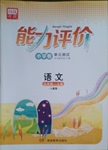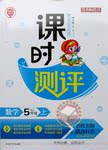题目内容
Play is the basic business of childhood, and in recent years research has shown the great importance of play in the development of a human being. From earliest infancy (婴儿), every child needs opportunity and the right materials for play, and the main tools of play are toys. The main function of toys is to suggest, encourage and play. To succeed in this, they must be good toys, which children will play with often, and will come back to again, and again. Therefore it is important to choose suitable toys for different stages of a child’s development.
In recent years research on infant development has shown that the standard a child is likely to reach, within the range of his inherited (遗传的) abilities, is largely determined in the first three years of his life. So a baby’s ability to benefit from the right play materials should not be underestimated. A baby who is encouraged, talked to and shown things and played with, has the best chance of growing up successfully.
In the next stage, from three to five years old, curiosity knows no bounds. Every type of suitable toys should be made available to the child, for trying out, experimenting and learning, for discovering his own particular ability: Bricks and jigsaws (七巧板) and construction toys; painting, scribbling (涂鸦) and making things; sand and water play;toys for imaginative and pretending play — the first social games for learning to play and get on with others.
But at the third stage of play development — from five to seven or eight years old — the child is at school. But for a few more years play is still the best way of learning, at home or at school. It is easier to see which type of toys the child most enjoys.
Until the age of seven or eight, play and work mean much the same to a child. But once reading has been mastered, then books become the main source of learning. Toys are still interesting and valuable, which lead up to new hobbies, but their significance has changed — to a child of nine or ten years old, toys and games mean, as to adults, relaxation and fun.
- 1.
according to the first passage we know that as a child grows up________.
- A.he should be allowed to choose his own toys
- B.he should be given the same toys
- C.he should be given different toys
- D.he should be given fewer and fewer toys
- A.
- 2.
according to the passage, the abilities a child has inherited from his parents________.
- A.determine his character
- B.will not change after the age of three
- C.partly determine the standard he is likely to reach
- D.to a large extent determine the choice of toys
- A.
- 3.
We learn from the passage that a child has boundless curiosity________.
- A.when he is two
- B.when he is around four
- C.when he is six
- D.when he is eight
- A.
- 4.
The passage is mainly about________.
- A.the importance of pre-school education
- B.the importance of schooling
- C.the role of play in a child’s development
- D.the choice of toys for youngster
- A.
文章主要讨论了玩具对不同年龄的孩子所产生的影响不同。
1.C。细节题。由第一段中的Therefore it is important to choose suitable toys for different stages of a child’s development可知。而由常识可知太小的孩子还没有自已选择玩具的能力的,排除A。B和D的与文章内容不符。
2. C。细节题。由第二段开头的句子知道:婴儿能力的发展必须在他的遗传能力范围之内,而这种发展主要取决于他生命中的前三年。
3. B。细节题。由第三段开始的In the next stage,from three to five years old,curiosity knows no bounds 可知。
4. C。主旨题。由文章首句可知。文章主要谈论玩具在孩子成长中的作用。

 能力评价系列答案
能力评价系列答案 唐印文化课时测评系列答案
唐印文化课时测评系列答案The royal family is a part of British history and cultural identity.
Up until the 17th century, people believed that the British king or queen had a “divine(天赐的)right” to rule. This was the idea that God chose the king or queen and that he or she was therefore above the law. However, this idea was challenged during the English Civil War, when King Charles the First was put in prison and then killed in 1649.
So what role does the British royal family have today?
The Queen is head of the UK and the Commonwealth. She has important formal duties that go with her different titles. As Head of State, for example, she represents the UK on visits abroad and invites other world leaders to visit the UK;as Head of the Armed Forces in name, only she can declare when the UK is at war or when a war is over. She has to sign many government and Commonwealth documents every day.
Although the royal family does the work for the UK, there are British people called“anti-monarchists(反君主制者)”who do not believe there should be a royal family. One criticism(批评意见)is that the British people should not have to pay for the royal family with their taxes(税).
Today, the royal family works hard to be relevant(相关的)in the modern world. The Queen still gives a speech to the nation on television at Christmas, but it gets less and less formal every year;now it is even available as a podcast(播客).
In 2005, after graduating from university, Prince William spent time teaching English in Uruguay, the sort of work many ordinary young British people do in their gap years.
【小题1】What can be concluded from the first two paragraphs?
| A.The British king or queen is considered above the law. |
| B.The English Revolution put an end to the British royal family in 1649. |
| C.The British king or queen is no longer believed to rule by divine right. |
| D.The royal family didn’t play an important role in Britain in the 17 th century. |
| A.Traveling around the UK. |
| B.Declaring when the world is at war. |
| C.Inviting other leaders to have dinner with her. |
| D.Signing Commonwealth documents every day. |
| A.Prince William is very popular in the UK |
| B.the royal family is trying to connect better with ordinary people |
| C.Prince William has made an effort to win young people’s admiration |
| D.many young British people do voluntary work |
| A.the royal family doesn’t have to pay taxes |
| B.the British people are all in favor of the royal family |
| C.the British people can talk to the Queen through a podcast |
| D.the royal family attacks republicans through media and press |